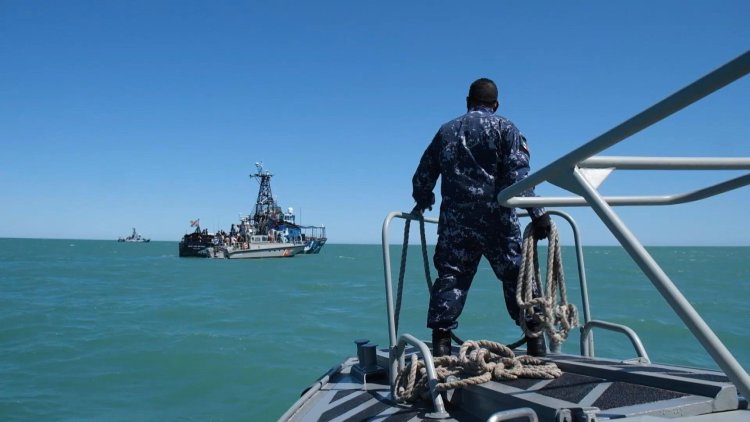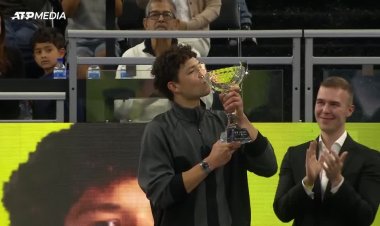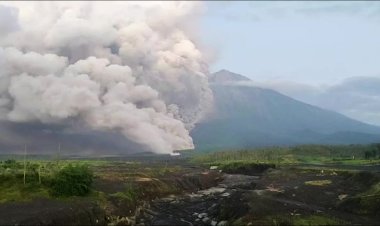Mexico seeks 'miracle' to save near-extinct vaquita porpoise

Mexican naval vessels, spotter planes and conservationists are patrolling the upper Gulf of California in a race against time to save the world's rarest marine mammal from extinction.
Mexico's navy and the environmental organisation Sea Shepherd are working together to prevent the vaquita porpoise -- which counts Leonardo DiCaprio among its celebrity defenders -- disappearing forever.
The species is critically endangered, due to illegal gillnets used to catch totoaba, a large fish whose swim bladder can fetch thousands of dollars in China thanks to its supposed medicinal properties.
The navy stepped up surveillance in January amid criticism from the United States that Mexico was not doing enough to protect the vaquita, the smallest porpoise on the planet.
The deployment came after researchers sighted eight specimens of the mammal -- known as the "panda of the sea" for the distinctive black circles around its eyes -- between October and November.
There are estimated to be fewer than 20 individuals left in a small area in the Gulf of California, the only place in the world where the vaquita is found, according to Sea Shepherd.
Navy personnel and activists from the conservation group now monitor the area every day, looking for illegal nets and preventing fishermen from approaching a "zero tolerance zone."
In the skies overhead, naval aircraft look for boats venturing into forbidden waters, in the latest phase of "Operation Miracle" -- launched by Sea Shepherd in 2015 to try to save the vaquita.
"The efforts that we've seen, specifically seen over the last three or four months, mean the vaquita has the best chance that they've had in decades," Sea Shepherd CEO Chuck Lindsey told reporters.
During a tour of the area for the media, Mexico's navy said it had recovered 70 nets so far this year, compared with 172 for all of 2021.
Gillnets form invisible barriers under the water that can span several hundred feet and trap not just totoabas but also vaquitas, whales, dolphins, sharks and sea turtles, according to Sea Shepherd.
"As we see a dramatic reduction in the illegal nets in the water, we know that the vaquita have a fighting chance," Lindsey said.















